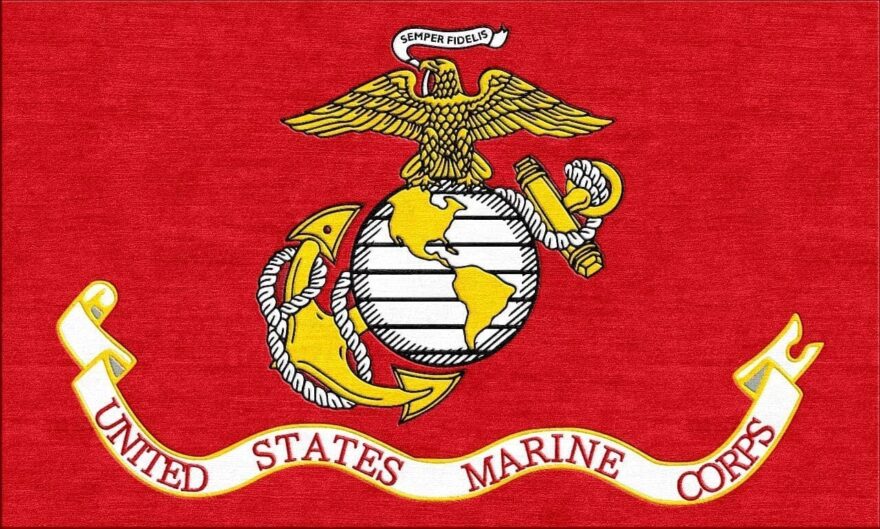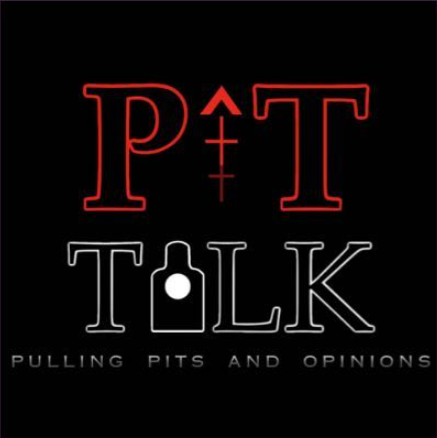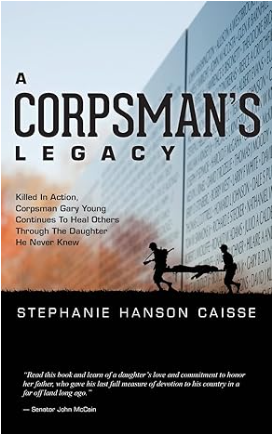by Wally Beddoe, 2010
Abstract
This report considers the moral issues associated with killing in a war. To add flavor to an otherwise mundane report, we will hear first-hand thoughts from Marines I have interviewed for this paper who have killed in war and how killing affected them then and now. For the purposes of this paper, just war theory, while an extremely important framework and is referenced, is not covered in depth. We can assume killing in a just war. Finally, we will conclude with my arguments supporting or opposing killing in war.
WHAT IS WAR?
Encyclopedia.com defines war as “armed conflict between states or nations (international war) or between factions within a state (civil war), prosecuted by force and having the purpose of compelling the defeated side to do the will of the victor. Among the causes of war are ideological, political, racial, economic, and religious conflicts. Imperialism, nationalism, and militarism have been called the dynamics of modern war. “
One cannot research ‘killing in war’ without encountering the terms “jus ad bellum” and “jus in bello”. According to Wikipedia, jus ad bellum are a set of criteria that are consulted before engaging in war, in order to determine whether entering into war is justifiable. While jus in bello concerns whether a war is conducted justly (regardless of whether the initiation of hostilities was just).
WHAT IS KILLING
Killing is an event that causes someone to die or the act of terminating a life. The rules of jus in bello aim to minimize the destruction in wars and protect civilians and non-combatants. The Stanford Encyclopedia of Philosophy states “Soldiers are only entitled to use their (non-prohibited) weapons to target those who are “engaged in harm.” Thus, when they take aim, soldiers must discriminate between the civilian population, which is morally immune from direct and intentional attack, and those legitimate military, political and industrial targets involved in rights-violating harm.” (“War,” 2000)
In nearly every article I read about killing, a distinction was made between combatants and non-combatants. Killing a combatant was allowed (not the same as murder) but killing non-combatants is an evil, and is never allowed.
FIRST HAND ACCOUNTS
Since my research is on killing in war, and in order to gain insight into the killing perspective, I asked some Vietnam Veterans, friends of mine, what they thought about killing in war. These Marines all had similar stoic responses that it was a matter of survival and that killing was necessary to protect their brother Marines. Marines, especially during Vietnam, were psychologically trained to kill. I was expecting a response to be more in line with stories of horror, mental sickness, guilt and emotional trauma but that’s not what I received. With the exception of my good friend Gordon Boswell, the killings by these Marines were (generally) up high in a helicopter whereas the killing Boswell did as a reconnaissance sniper was on the ground, up close and extremely personal. Boswell was himself shot on three separate occasions. Perhaps there is an emotional separation of sorts, if that’s possible, when the killing is not one-to-one.
Gordon Boswell, 1st Force Recon, Sniper, Vietnam, 1970-1971
“Taking another person’s life in skirmishes (fire fights, ambushes) didn’t bother me then or now. The overwhelming fear and adrenaline to survive takes over; you want to protect the rest of your fellow Marines. It seemed like everything happens in milliseconds; up close and personal. I can’t remember most of the details of these. Now when you are looking at another human being through a scoped weapon, you know that when you squeeze the trigger, his life is going to end and usually there was enough lag time to recover from the recoil and see the “pink mist”. It didn’t bother me then but now these memories have come back to haunt me. While the rest of the world is sleeping, I have nightmares in 3-D color, restless nights, pacing the floor and the f**ked up sweats at night. Bos~”
Mike Amtower, USMC, HMH-463, Vietnam ’68-‘69
“Look at it this way —- when someone in a wartime situation is shooting at you and doing his level best to kill your silly butt, the best, and only thing you can do, is shoot back and suppress his fire, or return the favor. It comes down to a simple matter of survival. I always had the feeling that the safest place in the world was about 6 feet long, 4 inches square at the rear, with a pair of handles and a butterfly. If it was bucking in your hands and the rounds were landing anywhere near the fool shooting at you, he was apt to change his mind. The sheep, sheep dog and wolf scenario was and is a good analogy.”
R.T. Foster, USMC, Helicopter Squadron, Vietnam ’68-‘69
“There is no shame, there is no guilt and no you would not understand.”
Bruce “Howdy” Mayor, USMC, HMM-161, Vietnam ’69-’70
“At the moment you are aiming at the muzzle flash or the movement in the bush or the target running across the rice paddy. Because of your training you sight the target and squeeze the trigger. It is not until you are returning to base that the thought of what just took place enters your mind. Yes, it grabs you like nothing else, but then you realize that muzzle flash was aimed at you or your fellow Marines. That movement in the bush was someone trying to get a better shot at you or your fellow Marines. The person running across the rice paddy was warning the rest of his squad or telling them to open fire upon you or your fellow Marines. You don’t talk about it because there is nothing to say, it is part of war, the ugly part. You came home and hopefully so did your fellow Marines.”
John “J.D.” Barber, USMC, HMM-263, Vietnam, ‘70/’71
The first time I fired back, the fire stopped coming from where I aimed. Not sure if I killed anyone, but odds are I did. The incident caused me to think about what I did. What I came away with was this; they were trying their best to kill me and my Brother Marines around me. I did what I had to do to protect them and myself. I also thought a bit deeper to my time in Vietnam. If I didn’t kill anyone directly, I was responsible for many deaths, just by what we were doing. Such as dropping off Marine Grunt’s, Sniper’s, Recon, etc. and then supporting them and their mission. When it comes to actual war, WWII was the last time we actually fought one. True war is unconditional. You fight it to win it, and you don’t worry about who is killed or what is destroyed. All you have to do is look at the Pacific war (number of Japanese POW’s) or the war fought by the Army Air Forces (Dresden, Tokyo, etc.). Just my thoughts on a very deep subject.
Fred Whitehurst, USMC, HMM-265, Vietnam ’65-‘67
“We have a saying and I still stick by it today. KILL THEM ALL AND LET GOD SORT THEM OUT! I’ve seen too many dead Marines to have any regrets for any gooks I may have killed.”
John “Ace” Hunt, USMC, HMM-265, Vietnam ‘69
“Wally, I never gave it one thought at all. … I looked at it as they [enemy] are so ruthless, and do want to kill you, so kill them at any chance you had, which I did, and as many of them as I could. Think I did a very good job, on top of good jobs. I made sure of that. Yes killing, even in War, is a rough thing, but it’s them, or you, and your Crew, plus whoever you’re hauling around at that time. I would NOT hesitate one second to pop a gook anywhere, and at any time. If they were running, pointing at me, or shooting at me, trying to hide, they suddenly blew up. Then, I’d look for any more to pop. I do not regret it, not one bit, just wish I had had more opportunities, and that can be printed at anytime, anywhere. If I had it to do over again, I’d do a much better job, that’s for certain. Just hate that my flight time ended as early as it did. Semper Fi.”
UNDERLYING ETHICAL POSITIONS
Aristotle, according to the Stanford Encyclopedia of Philosophy, is probably among the triad (Aristotle, Cicero and Augustine) of those responsible for the origination of the Just War Theory.
In his work, Augustine asked whether a Christian can ever justify killing another, given the Biblical imperative to “turn the other cheek.” Augustine’s answer was this: One can use force, not to protect oneself, but to protect one’s neighbor. As the scholar Jean Elshtain, author of the highly regarded book Just War Against Terror, explains:
For early Christians like Augustine, killing to defend one’s self alone was not enjoined: It is better to suffer harm than to inflict it. But the obligation of charity obliges one to move in another direction: To save the lives of others, it may be necessary to imperil and even take the lives of their tormentors. Thus, according to Augustine, if only you are attacked, you are obligated to turn the other cheek and die, because personal self-defense is immoral; only if someone attacks your neighbor’s cheek are you permitted to retaliate. (Brook, & Epstein)
According to author Darrell Cole in his book “When God Says War Is Right”, fighting justly in a just cause is not an evil, but a good – an act of love – that is pleasing to God; fighting unjustly is an evil for which there is never an excuse.
The right ethics leads to individual (and societal) survival, prosperity, happiness; the wrong ethics leads to misery, poverty, death. This is true in every field but is especially true in the realm of war, as the present struggle has made clear. We are losing the war on Islamic Totalitarianism because our leadership, political and military, is crippled by the morality of altruism, embodied in the tenets of Just War Theory. The moral code inherent in Just War Theory defines rules that undercut, inhibit, and subvert any hope of success in war, because it demands that one regard one’s own life as the sacrificial object of others. The moral code of rational self-interest, by contrast, defines principles to attain the values that one’s life and happiness require—including success in war and national self-defense. Altruism is the morality of defeat, and rational self-interest is the morality of victory. (Brook, & Epstein)
SELF-DEFENSE
In his 1977 book “Just and Unjust Wars”, Michael Walzer argues that the individual acts of killing that occur in combat are morally justified by the collective right of self-defense. He dismisses the idea that soldiers require an individual moral justification for killing other soldiers in war. Instead, he holds that all soldiers act merely as constrained agents of their respective warring states. Still, Walzer’s collectivization of soldiers’ agency does not lead him to dismiss the moral importance of principles of individual self-defense. In fact, his argument is based upon the individual moral right to kill in self-defense.
The way that Walzer relates the right to kill in self-defense to the moral justification for killing in combat is complex. He begins by assuming that all persons possess the rights to life and liberty. He then asserts that communities of people, such as states, possess those same rights in virtue of the rights of their members, and that the collective analogues of those rights for states are territorial integrity and political sovereignty. He therefore concludes that a state is justified in defending its territory and sovereignty in the same way that an individual person is justified in defending her life and liberty. Walzer, however, notes an important distinction between the defense of individual and collective rights. Whereas individuals can use forceful non-lethal measures to resist minor violations of their rights, states often do not have that luxury. When states forcibly defend their rights, their citizen-soldiers usually get killed, which presumably violates those citizens’ rights. This, in turn, presents a challenge to the very concept of collective self-defense. For, if states derive their rights from the rights of their citizens, yet their citizens’ rights are violated in the course of defending their states’ rights, and then it appears that the violation of individual rights would undermine the legitimacy of exercising collective rights. Walzer counters this problem by giving an account of why the killing of citizen-soldiers in combat is not a violation of their rights. He does this by arguing those individuals’ collective roles as soldiers cause them to lose their individual rights to life, so that their deaths are not a violation of rights. In this way, Walzer is able to hold that the right to kill in self-defense directly justifies a nation’s recourse to war and indirectly sanctions the killing that occurs within the war. (Kilner)
It’s important as a Christian to understand what the Bible says about killing. “When we look at the Ten Commandments listed in Exodus 20:1-17, we can see that these laws were given for the good of mankind. One of these laws is in verse 13: “Thou shalt not kill.” You may wonder if God said “do not kill,” why He would then decree that governments could send men to war to kill other men. The reason is that the Hebrew meaning of the word translated as “kill” actually means “murder” or “to slay someone in a violent manner unjustly.” So, in the Ten Commandments God is saying, “Thou shalt not murder.” Unjust premeditated killing with the wrong motives of hatred, vengeance, greed, jealousy, etc. is murder. Killing in self defense to protect oneself is not murder nor is executing condemned killers. The very founders of this nation were known to carry a Bible in one hand and a musket in the other in order to defend the freedom they sought here. The freedom to worship God was one of those freedoms they fought for and died for.” (Miller)
CONCLUSION
Members of the Unites States Armed Forces, such as me, all take an oath:
“I, Walter Beddoe, do solemnly swear that I will support and defend the Constitution of the United States against all enemies, foreign and domestic; that I will bear true faith and allegiance to the same; and that I will obey the orders of the President of the United States and the orders of the officers appointed over me, according to regulations and the Uniform Code of Military Justice. So help me God.” (U.S. Code)
Because of this oath, we are morally obligated to kill if necessary to achieve the objectives of our Nation. Pete Kilner, Army Officer and veteran of the Iraq and Afghanistan Wars says on his blog “If killing the bad guys is not morally justifiable, then all participation in war is immoral. I feel very confident that killing combatants who fight for an unjust cause is morally permissible and perhaps obligatory for soldiers waging a just war. In fact, I find that many people who oppose war on moral grounds don’t have a problem with killing enemy combatants of an unjust aggressor. “(Kilner-Blog)
Enemy combatants have an equal right to kill. “Enemy combatant’ shall mean an individual who was part of or supporting Taliban or al Qaeda forces, or associated forces that are engaged in hostilities against the United States or its coalition partners. This includes any person who has committed a belligerent act or has directly supported hostilities in aid of enemy combat forces.” (Denniston, 2008)
My research suggests that the common position in nearly all camps is that killing in war is morally accepted and is therefore legitimate (ethical) to kill “enemy combatants” in war.
Works Cited:
War. (2000, February 4). Retrieved from https://plato.stanford.edu/entries/war/
Brook, Y, & Epstein, A. (n.d.). “just war theory” vs. american self-defense. Retrieved from https://www.theobjectivestandard.com/issues/2006-spring/just-war-theory.asp
Kilner, Peter. (n.d.). Soldiers, self-defense, and killing in war. Retrieved from https://scholar.lib.vt.edu/theses/available/etd-41998-18346/unrestricted/etd.PDF
U.S. Code, . (n.d.). 502. enlistment oath. Retrieved from https://www.law.cornell.edu/uscode/html/uscode10/usc_sec_10_00000502—-000-.html
Kilner-Blog, Peter. (n.d.). Thoughts of a soldier-ethicist . Retrieved from https://soldier-ethicist.blogspot.com/

 Our legacy lives through the stories we tell. The Suck Life wants yours! Make Chesty proud!
Our legacy lives through the stories we tell. The Suck Life wants yours! Make Chesty proud!



 Semper Fidelis
Semper Fidelis


Great website. Lots of helpful info here. I’m sending it to some buddies ans also sharing in delicious. And certainly, thanks on your effort!